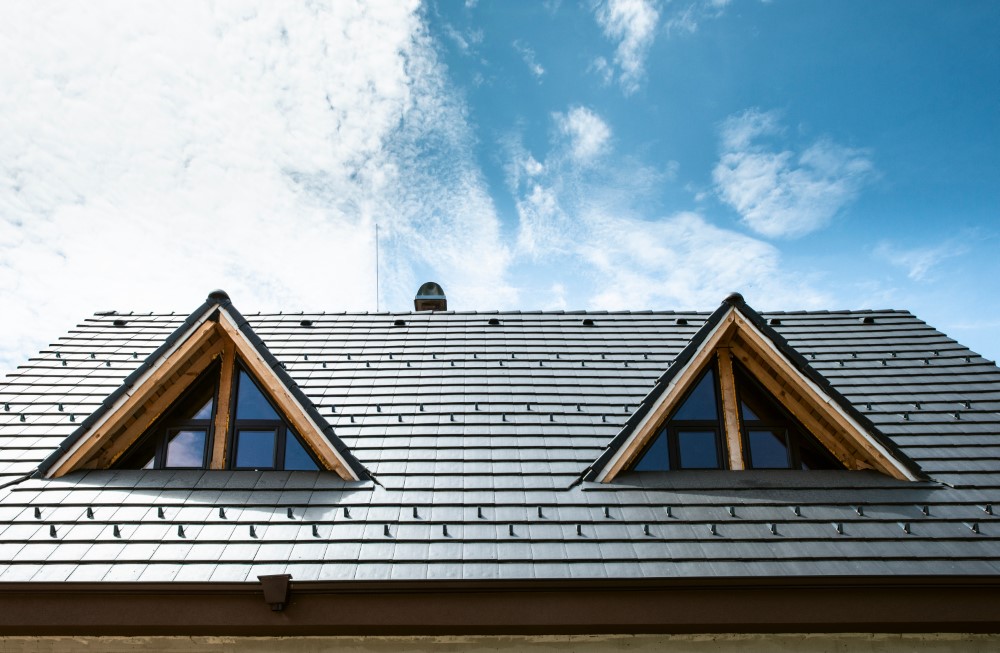The roof of your home is one of the most important features regarding your energy bills. If you have a leaky roof, you could lose monthly money on your heating and cooling costs. Here, we will discuss how your roof can affect your bills and what you can do to ensure you are getting the most out of your home’s insulation.
Ventilation
One of the most important things you can do to keep your energy bills low is to ensure that your attic is properly ventilated. This will allow the hot air to escape in the summer and the cold air to stay in during the winter. If you have a poorly ventilated attic, you could pay hundreds of dollars more yearly on your energy bills. Rayburn1 Roofing, Solar & Windows can help you ensure that your attic is properly ventilated and install solar or vents to help keep your home cool in the summer.
Insulation
Another important thing to consider when it comes to your roof and energy bills is insulation. If your home is not properly insulated, heat can escape through the walls and ceiling during the winter, and cool air can enter during the summer. This can cause your heating and cooling costs to skyrocket. To avoid this, make sure that your home is properly insulated. Your family and your wallet will thank you.
If you want to find out if your home is not properly insulated, there are a few things you can do. First, check your energy bills. If they are higher than usual, it could be because heat is escaping from your home. You can also ask a professional to come and take a look at your insulation. They will be able to tell you if it needs to be replaced or if there are any other problems. Lastly, you can try doing an energy audit yourself. This involves going around your home and checking for drafts and other signs of heat loss. If you find any, it means that your home is not properly insulated and you should take steps to fix the problem.
Leaks
Leaks are one of the most common problems when it comes to roofs and energy bills. If you have a leak in your roof, it can allow hot or cold air to enter your home, which will cause your energy bills to increase. In addition, leaks can also lead to water damage, which can be expensive to repair. To avoid leaks, have your roof inspected regularly and repaired as soon as possible if a problem is found.
If you think you may have a leak in your roof, the first step is to inspect the outside of your home for any signs of water damage. If you see any water stains on your ceilings or walls, it is likely that you have a leak. Another way to check for leaks is to go into your attic during the day and see if there is any sunlight coming through. If there is, then you probably have a hole in your roof. To fix a leak, you will need to hire a professional roofer to repair or replace the damaged shingles.
Shingle Color
The color of your shingles can affect how much heat your home absorbs. If you have a light-colored roof, it will reflect more heat away from your home, keeping it cooler in the summer. Conversely, if you have a dark-colored roof, it will absorb more heat, making your home warmer in the winter. Live in an area with extreme temperatures. It might be worth investing in a cool roof coating or other energy-efficient roofing material to help keep your home’s temperature regulated.
A Radiant Barrier
Radiant barriers are one of the best ways to regulate your home’s temperature. A radiant barrier is a material that reflects heat away from your home. This can help you keep your home cooler in the summer and warmer in the winter, which will save you money on your energy bills every month.
By installing a radiant barrier on your roof, you can reflect heat away from your home in the summer and keep heat inside your home in the winter. This will help you save money on your energy bills every month and extend the life of your roof.
Roofing Materials
The type of roofing material you choose can also affect your energy bills. If you live in an area with extreme temperatures, it might be worth investing in a cool roof coating or other energy-efficient roofing material to help keep your home’s temperature regulated. Metal roofs are also good at reflecting heat away from your home, keeping it cooler in the summer. So if you’re looking to save money on your energy bills, it’s worth considering the type of roofing material you use.
Solar Panels
Another way to save money on your energy bills is to install solar panels on your roof. Solar panels collect energy from the sun and convert it into electricity that you can use to power your home. This can help you save money on your monthly energy bills and is a great way to reduce your carbon footprint. Solar panels can be expensive to install, but they will pay for themselves over time and help you save money in the long run. If you’re really looking to save, solar panels are a great way to generate your own electricity and reduce your carbon footprint. Talk to a roofing professional today to learn more about how you can make your roof work for you.
If you’re looking to save money on your energy bills, it’s important to consider the roof of your home. Ventilation, insulation, and shingle color can all affect how much heat your home absorbs. A radiant barrier is one of the best ways to regulate your home’s temperature. And the type of roofing material you choose can also affect your energy bills. Solar panels are another great way to save money on your monthly energy bills. So if you’re looking to save money, it’s worth considering the roof of your home.





